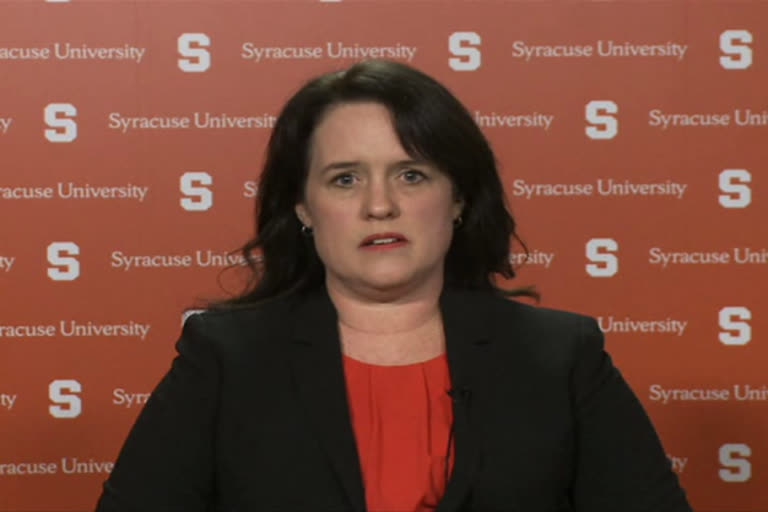किगाली: रवांडा का नरसंहार भयानक अत्याचारों में से एक है. यहां दो समुदायों हुतु और तुत्सी के बीच जातीय संघर्ष में लगभग 8 लाख लोग मारे जा चुके हैं. 1994 में रवांडा के राष्ट्रपति हेबिअरिमाना की हत्या कर दी गई थी. उसी साल बुरुन्डी के राष्ट्रपति सिप्रेन की भी हत्या कर दी गई. इसके बाद नरसंहार ऐसा बढ़ा कि रोकना मुश्किल हो गया.
1994 में 6 अप्रैल को रवांडा के राष्ट्रपति हेबिअरिमाना और बुरुन्डियान के राष्ट्रपति सिप्रेन की हत्या कर दी गई,जिसके बाद इस नरसंहार की शुरुआत हुई. रवांडा नरसंहार के दौरान एक भयानक घटना हुई. जिसने शब्दों की शक्ति को दिखाया.
यह इतिहास में हुए सबसे भयानक अत्याचारों में से एक है. जिसमें लगभग 800,000 लोग, जातीय तुत्सी और उदारवादी हुतु मारे गए थे. उन्होंने कहा आतंक 100 दिनों तक चला. एक विशेषज्ञ ने बताया उस समय हुतु के नेतृत्व की सरकार थी, इस सरकार के सदस्यों ने ही लोगों को मारने का निर्देश दिया था. उस समय गृह युद्ध जैसे हालात थे.
उन्होने आगे कहा कि रवांडा अब भी अपने अतीत से पहचाना जाता है.
सिरैक्यूज यूनिवर्सिटी में कानून की एक सहयोगी प्रो. कॉरा ट्रू-फ्रॉस्ट ने रविवार को चाइना ग्लोबल टेलीविज़न नेटवर्क (सीजीटीएन) से बात की . उन्होंने बताया कि यह एक बहुत बड़ा सबक है, जिसे हम त्रासदी से सीख सकते हैं. कॉरा ने कहा कि मुझे लगता है कि हम अमेरिकियों समेत अन्य देशों से हम एक सबक सीख सकते हैं, और वह है शब्दों की शक्ति.
उन्होंने आगे कहा कि यह रवांडा के अंतरराष्ट्रीय आपराधिक न्यायकरण के सबसे उल्लेखनीय निष्कर्षों में से एक आपराधिक न्यायकरण है, जिसे संयुक्त राष्ट्र परिषद द्वारा स्थापित किया गया था. इसमें तीन पत्रकार थे जिन पर मौत के उन सौ दिनों में घृणा और नफरत फैलाने का मुकदमा चलाया गया था.
इतिहासकार बताते हैं कि इस नरसंहार का कारण तत्कालीन रवांडा के राष्ट्रपति जुवेनल हबरिमाना की हत्या का कारण है. क्योंकि 6 अप्रैल, 1994 को किगाली अंतरराष्ट्रीय हवाई अड्डे के पास उनके विमान पर गोली चलाई गई थी. जबकि कॉरा ने कहा कि इस घटना पर ध्यान दिया जाएगा, क्योंकि टुटिस और हुतु के बीच कई वर्षों से अनबन थी.
सिएरा लियोन और पूर्वी तिमोर में अंतरराष्ट्रीय आपराधिक न्यायाधिकरण के साथ काम करने वाले प्रो. ने कहा कि रवांडा में हुए नरसंहार की क्रूरता अनोखी नहीं, लेकिन मरने वालों की संख्या दुनिया को डराती है, और कईं सवाल करती है.
कॉरा ट्रू-फ्रॉस्ट ने कहा कि हत्या का अपराध सामान्य हो गया सत्ता के पुनर्वितरण की संभावना लोगों के लिए खतरा थी. और उन्होंने सत्ता पर आसीन लोगों को नेतृत्व करने की अनुमति दी.




